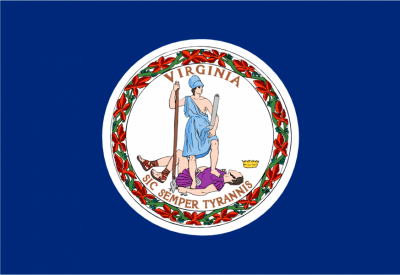Virginia

Virginia recognizes a right to prevent the appropriation of one’s name or likeness by statute only.
Statute
YES.
Virginia provides civil and criminal actions to prevent the “unauthorized use of the name or picture of any person [for] advertising purposes, or for the purpose of trade.” The statute is considered a codification of the common law privacy-based appropriation tort.
The Virginia statute is “substantially similar” to New York’s Civil Rights Act §§ 50-51 and Virginia courts look to “New York courts for guidance” in interpreting its own statute. Town & Country Properties, Inc. v. Riggins, 457 S.E.2d 356 (Va. 1995). It was adopted in 1904 and expanded to include post-mortem rights in 1919. Barker v. Richmond Newspapers, Inc., 14 Va. Cir. 421 (1973)
WLJA-TV v. Levin, 564 S.E.2d 383 (Va. 2002)
Common Law - Right of Publicity
NO
Crump v. Forbes, 2000 WL 33258762 (Va. Cir. Ct.)
Common Law - Right of Privacy-Appropriation Tort
NO
WLJA-TV v. Levin, 564 S.E.2d 383 (Va. 2002)
Post-Mortem Right
YES
Virginia provides a statutory post-mortem right for twenty (20) years after death.
Limits on Right
Does the law require the plaintiff or identity-holder to be a celebrity or have a commercially valuable identity?
NO
Does the law protect persona?
LIKELY NO
The statute is limited to use of name, photograph or portrait and at least one federal court has rejected a claim under the statute based on the use of a screen name.
Motise v. America Online, Inc., 2005 WL 1667658 (E.D. Va. 2005)
Is Liability Limited to Uses on Commercial Advertising or Commercial Speech?
NO
The statute is broader and allows for liability for any trade purposes which may include uses in media and expressive works. However, at least one federal court has suggested that uses in magazines do not count as for purposes of trade or advertising.
Town & Country Properties, Inc. v. Riggins, 457 S.E.2d 356 (Va. 1995)
Cornwell v. Sachs, 99 F. Supp.2d 695 (E.D. Va. 2000)
Falwell v. Penthouse Intern., Ltd., 521 F. Supp. 1204 (W.D. Va. 1981)
Statutory Defenses
The statute does not contain exceptions.
First Amendment Analysis
The Virginia Supreme Court has considered a First Amendment defense to the use of a plaintiff’s name in a real estate flyer and concluded that such a use is commercial speech and that when such a use does not provide informational value it is not protected by the First Amendment. The state Supreme Court has also held that there is a newsworthiness exception to the statute. Federal courts also have recognized the newsworthiness exception, as well as the incidental use exception.
In Town & Country Properties, Inc. v. Riggins, 457 S.E.2d 356 (Va. 1995), the Virginia Supreme Court held that the use of a famous football player’s name on a flyer advertising the sale of a home he had lived in provided no informational value and therefore was unprotected commercial speech. The Court’s conclusion is wrong both as a matter of constitutional doctrine and factually. No doubt consumers would find informational value in knowing that someone famous had lived in a particular house, and commercial speech is protected (at least under intermediate scrutiny) if it truthful speech about lawful activities, which this clearly was.
WLJA-TV v. Levin, 564 S.E.2d 383 (Va. 2002)
Town & Country Properties, Inc. v. Riggins, 457 S.E.2d 356 (Va. 1995)
Williams v. Newsweek, Inc., 63 F. Supp.2d 734 (E.D. Va. 1999)
Other Commentary
One’s name and likeness are considered property in Virginia and the appropriation statute is therefore subject to the longer statute of limitations afforded to property-based claims.
Lavery v. Automation Management Consultants, Inc., 360 S.E.2d 336 (Va. 1987)
